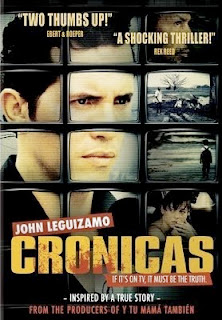Entry #11 of the Copa America 2011 Book & Film Festival.
Book: The Ecuador Reader, edited by Carlos De La Torre
For many living outside Latin America, Ecuador is not on the geographic or imaginative map. Colombia, Ecuador’s northern neighbor, is well known and misrepresented as the land of violent narcotraffickers and happy coffee farmers (à la Juan Valdez). Peru, to the south, seems reduced in popular imagination to a source of raw coca or as a mystical land whose Andean mountains (Machu Picchu) and Amazonian jungle are waiting to be discovered by adventurous travelers. For better or worse, fragmentary images, stereotypes, and fantasies about Ecuador are less readily available.
The above words found in the opening paragraph of The Ecuador Reader are certainly true. For a variety of reasons, Ecuador does not seem to draw as much interest as other South American countries. Soccer also has not helped Ecuador get much exposure on the global stage. They have only qualified for two World Cups, both recently in 2002 and 2006, with their best result coming in 2006 when they finished second in their group behind Germany and advanced to the round of 16 where they lost 1-0 to England. Ecuador are also one of three nations to not have won a single Copa America (Chile and Venezuela being the other two). However, the country has plenty to offer and has a rich history/culture as well. That is why The Ecuador Reader is a welcome book because it contains a wonderful collection of essays, articles and book excerpts which helps to give some insight into Ecuador’s history, culture, politics and literature.
Note: A real surprize for me was that this book contains an excerpt from Jorge Icaza’s Huasipungo, a novel that was originally the Ecuador book choice for this Copa America spotlight. However, I could not acquire an English translation of Huasipungo in a timely manner and opted for The Ecuador Reader which is why I was delighted to read a few pages of Jorge Icaza's famous book.
Film: Cronicas (2004, Sebastián Cordero)
Cronicas starts off by poking fun at the media circus associated with 24 news channels and ends up becoming a serial killer hunt film. Manolo (John Leguizamo) travels to Babahoyo to cover a story about a serial killer targeting little children. After filming the funeral of one of the victims, Manolo chances upon another story when a young boy is run over by a pick-up truck. The driver, Vinicio (Damián Alcázar), accidentally hit the child and in a panicked state tries to back his truck. However, people think that Vinicio is trying to escape and beat him up. The mob's mood escalates into calls for blood and someone pours gasoline over Vinicio. While all this is going on, Manolo & his cameraman do nothing but film the violence. Vinicio is only saved by the arrival of the police who take him into custody. Manolo senses a story and visits Vinicio in jail where Vinicio tries to cut a deal with Manolo by claiming that he has inside information about the serial killer. In exchange for that information, Vinicio wants Manolo to film an interview which will help him get out of jail. Manolo does not want to pass over a possible exclusive scope so he begins to dig for the truth but finds himself being played by Vinicio. On top of that, Manolo is also under pressure from his boss (played by Alfred Molina) who wants Manolo to fly to Colombia for another breaking story. Cronicas tries to juggle two separate stories of media satire and serial killer hunt and that results in a lackluster final third when events follow a very predictable path. Still, a decent watch.
Bonus Film: Ratas, ratones, rateros (1999, Sebastián Cordero)
Salvador steals and cons people for a living but his small time criminal life gets jolted with the arrival of his cousin Angel. Angel is on the run from thugs and drags Salvador into his mess. Rodents marked Sebastián Cordero’s directorial debut and while the film is not as polished as Cronicas, Ratas, ratones, rateros’ look and mood perfectly captures the street life that the story requires.
Ecuador’s Copa America Campaign
Ecuador had a disappointing Copa America campaign as they finished bottom of Group B although they still went into their final group game with a chance to advance to the quarter-finals. Ecuador drew their opening game 0-0 with Paraguay, a result that was not bad because the other two teams in Group B, Brazil & Venezuela, also tied their opener 0-0. Ecuador fell to a 1-0 defeat against Venezuela in the second game but could have advanced to the quarters with a win in their last game against Brazil. That task did not seem too daunting because Brazil were quite awful in their first two games and were under tremendous pressure going into the final game. Ecuador did find ways to trouble Brazil and Felipe Caicedo twice leveled the game for Ecuador but in the end, Brazil ran away as 4-2 winners.

